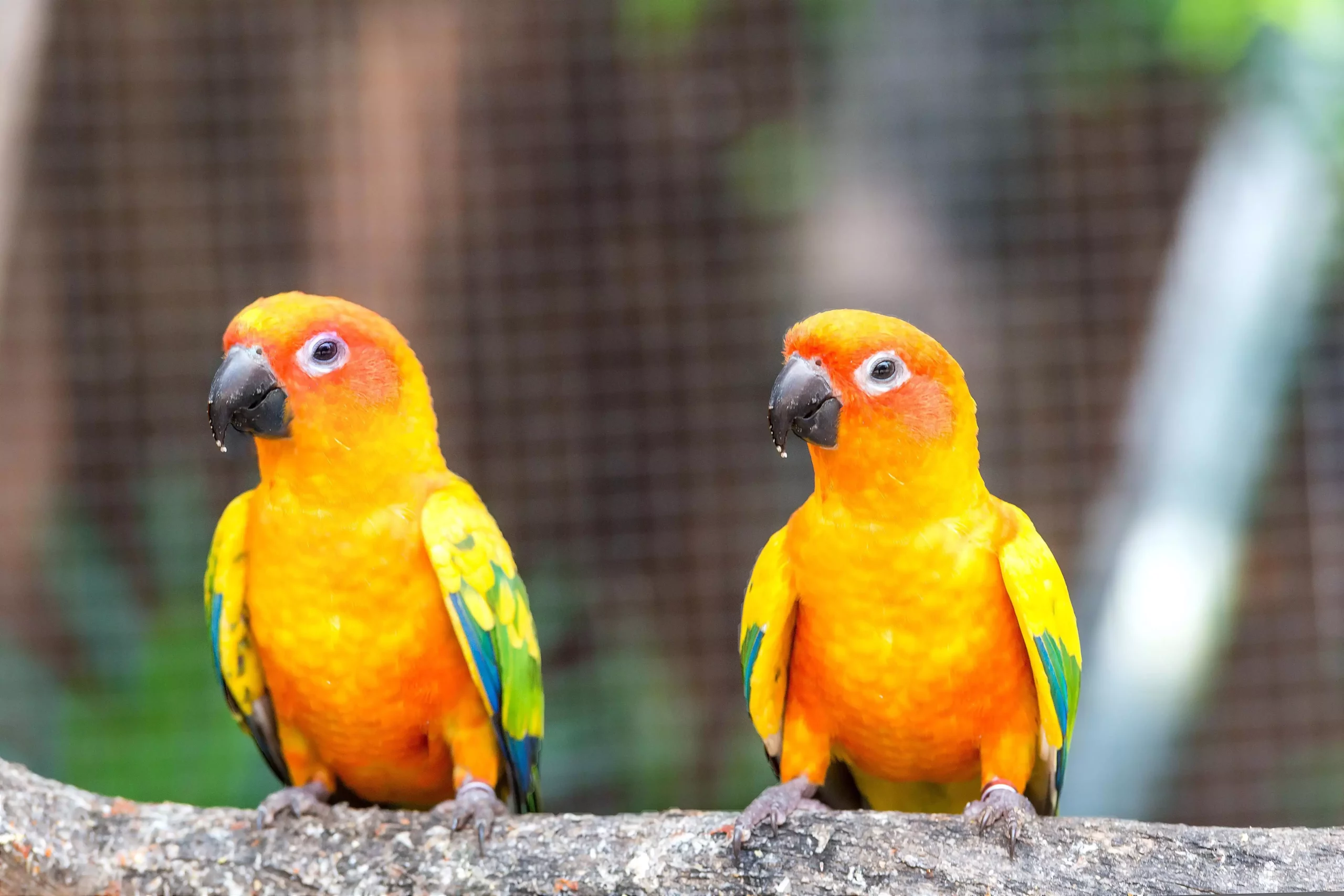The sun conure, known scientifically as *Aratinga solstitialis*, is a truly captivating bird with its brilliant feathers and lively disposition. Popular among avian enthusiasts, these medium-sized parrots are renowned for their playful nature and intelligence. While they make excellent companions for those willing to invest the time and effort, prospective owners should be aware of the responsibilities that come with maintaining this energetic and social bird.
Native to the tropical regions of northeastern South America including areas of Venezuela, northern Brazil, and Guyana, the sun conure thrives in various habitats such as inland tropical forests, dry savanna woodlands, and coastal ecosystems. Preferring fruit-laden trees and palm groves, these birds are a quintessential element of their natural environment. Unfortunately, their population is currently endangered, primarily due to habitat destruction and the illegal pet trade. The drastic decline in their numbers has raised concerns among conservationists, even with regulations put in place banning their import in certain regions.
Physical Characteristics and Lifespan
Adult sun conures are strikingly adorned in a mix of bright oranges and yellows with touches of green and blue, while juveniles display a more subdued olive green hue, an adaptation that helps protect them from predators. They typically reach about 12 inches in length and can live between 15 to 30 years when well cared for in captivity. It’s important to note that determining the sex of a sun conure is not easily achievable through visual observation; genetic testing is often required for accurate identification.
Sun conures exhibit a plethora of endearing traits, which is why they are favored by many bird owners. Their sociable nature requires significant interaction to remain happy and well-adjusted. These birds thrive on routines and enjoy engaging in playful activities that stimulate their curious minds. Sun conures have a playful demeanor, often engaging in tricks and antics that showcase their intelligence.
However, this playful nature comes with its own set of challenges. Sun conures are known for their loud vocalizations, which can often be described as piercing. Their calls serve multiple purposes in the wild, but in a domestic setting, they can be inconvenient for those living in close quarters, like apartments or condominiums. Fortunately, while you cannot completely train them to be quiet, early training may help control excessive screaming behavior.
Housing Needs and Environment
When it comes to housing, sun conures require a spacious cage to accommodate their active lifestyle. A minimum cage size of 30 inches by 30 inches with a height of 36 inches is recommended. The bars should be spaced closely enough to avoid the bird getting its head stuck. Additionally, providing a play gym and plenty of perches is essential to keep your sun conure entertained and active.
An ideal environment for a sun conure would have a temperature range between 65 and 80 degrees Fahrenheit. Daily out-of-cage time is crucial, and it is advisable to allow at least three hours each day for flying and exploring safely supervised. Creating an enriching environment filled with various toys can combat boredom, which often leads to undesired behaviors.
Feeding a sun conure requires attention to ensure they receive a balanced diet. A formulated pellet diet should comprise approximately 75-80% of their nutritional intake, complemented by fresh fruits, leafy greens, and root vegetables. Some beneficial options for treats include nuts and seeds, but excessive amounts of these should be avoided due to their high-fat contents. Proper nutrition directly impacts your bird’s health, so always be mindful of what is offered.
Regular health check-ups with an avian veterinarian are crucial for keeping your sun conure in optimal health. They can be susceptible to various health problems, including vitamin deficiencies, feather picking, and infections. Additionally, behavioral issues often stem from boredom or lack of interaction, underscoring the importance of engagement and stimulation in their daily routine.
The sun conure captures the hearts of many with its vibrant colors and engaging personality. While these birds can be affectionate and entertaining companions, they are not the best choice for novice bird owners without the time or commitment necessary for socialization and care. Understanding the unique needs of a sun conure thoroughly before bringing one into your home will lead to a rewarding experience for both the pet and owner. If you can provide the attention, space, and proper care this species requires, the lively sun conure can become a cherished member of your family for many years.

